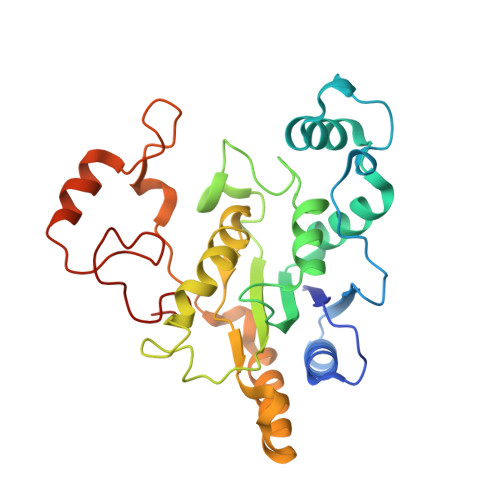A small molecule chaperone rescues the stability and activity of a cancer-associated variant of NAD(P)H:quinone oxidoreductase 1 in vitro.
Strandback, E., Lienhart, W.D., Hromic-Jahjefendic, A., Bourgeois, B., Hogler, A., Waltenstorfer, D., Winkler, A., Zangger, K., Madl, T., Gruber, K., Macheroux, P.(2020) FEBS Lett 594: 424-438
- PubMed: 31605637
- DOI: https://doi.org/10.1002/1873-3468.13636
- Primary Citation of Related Structures:
6FY4 - PubMed Abstract:
NAD(P)H:quinone oxidoreductase 1 (NQO1) is a human FAD-dependent enzyme that plays a crucial role in the antioxidant defense system. A naturally occurring single-nucleotide polymorphism (NQO1*2) in the NQO1 gene leads to an amino acid substitution (P187S), which severely compromises the activity and stability of the enzyme. The NQO1*2 genotype has been linked to a higher risk for several types of cancer and poor survival rate after anthracycline-based chemotherapy. In this study, we show that a small molecular chaperone (N-(2-bromophenyl)pyrrolidine-1-sulfonamide) repopulates the native wild-type conformation. As a consequence of the stabilizing effect, the enzymatic activity of the P187S variant protein is strongly improved in the presence of the molecular chaperone in vitro.
- Institute of Biochemistry, Graz University of Technology, Austria.
Organizational Affiliation:


















